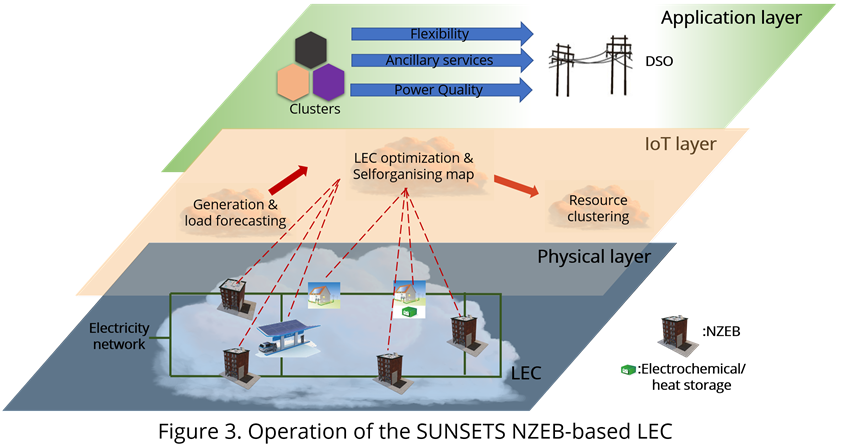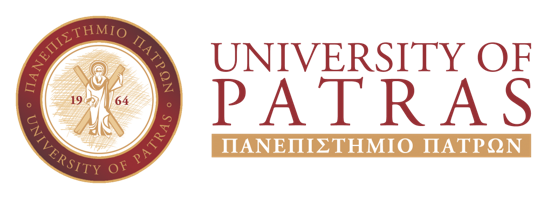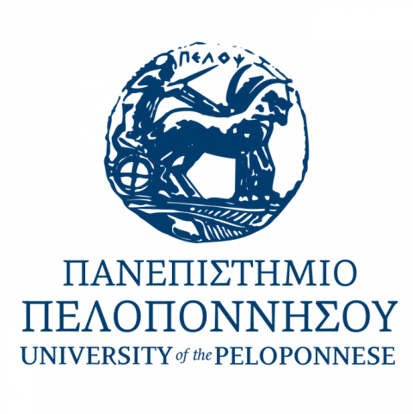
PROJECT SUNSETS
Modular Control Systems for Maximizing Solar Energy Utilization and Grid Service Provisions by Residential PV Systems coupled with Thermal Storage.
SUNSETS developed and demonstrated innovative solutions and technologies, enabled by digitalization, for a solar photovoltaic-dominated near zero energy building-based local energy community aiming to increase photovoltaics penetration and enhance community’s energy efficiency. SUNSETS’s advanced building energy management system maximizes, at the building level, the value of solar energy surplus by optimally dispatching building’s loads and energy (electricity and heat) storage to enhance solar energy self-consumption and improve the energy efficiency.
Objectives and Targets
SUNSETS
aims to facilitate high penetration of solar photovoltaics in distribution
level and their integration in European distribution systems via suitable
aggregation and ancillary service provision by photovoltaic-dominated
NZEB-based energy communities. The project employs integrated solutions, while
efficiently exploiting the opportunities provided by innovative technologies.
SUNSETS core delivery is a novel energy management system that increases the
building’s self-consumption and energy efficiency by exploiting the excess
power generated by photovoltaics. This surplus is expected to increase
significantly over the next decades, so it will be capped to demand level. A
preliminary analysis shows that the surplus value is expected to exceed 330M€
at 80% penetration, as seen in Figure 1.

Part of the excess photovoltaic generation is diverted to thermal and battery storage, supply the energy demand of the building even when the sun is not available, through heat-to-electricity technology, while another part is permanently converted to heat covering the demand for hot water. SUNSETS management system operation is shown in Figure 2. An interoperable Internet of Things platform aggregates the NZEBs in an energy community, which is optimally controlled to provide ancillary services to the grid aiming to ensure the secure operation of the grid even under high variable renewable penetration, as presented in Figure 3.


The
new thermal storage technologies include the smart residential electric boilers
developed by UoP which will be coupled with the residual heat from
heat-to-electricity conversion based on Azelio’s technology. Innovative
solutions and technologies will be enabled by an interoperable cloud-based Internet
of Things platform that connects digitally all NZEBs to the local energy community
controller which coordinates the NZEBs to provide ancillary services (i.e.,
voltage support, harmonic compensation, congestion relief) to the grid.
At the local energy community level, advanced
optimization algorithms will be developed for local energy community controller
that will manage community’s energy, considering storage availability while
aiming for the energy efficiency enhancement by using solar energy surplus.
Based on advanced forecasting, the local energy community is self-adaptively
clustered to efficiently use resources for different services. Simulations will
evaluate the benefits of the developed solutions, while real-life
demonstrations will confirm NZEB ability to provide ancillary services to the
grid (Sweden), verify smart boiler operation (Greece) and demonstrate
efficiency improvement by combining heat-to-electricity technology with smart
boilers to exploit the heat losses in virtually connected demo-sites (Sweden
and Greece).
Specific Objectives
1.
Develop a building energy management system to increase solar energy self-consumption
SUNSETS
aims to develop a novel energy management system to control the solar energy
surplus and optimally distribute it between electricity and heat storage. The
developed management system will consider the solar energy availability, the
forecasted generation and load of the building as well as the status of the
storage devices to determine an optimal energy schedule for the building.
2.
Increased photovoltaic penetration and integration in local grids by using photovoltaics as
ancillary service
SUNSETS
will develop tools increasing the photovoltaic hosting capacity of distribution
grids by providing ancillary services to the grid ensuring its secure operation
even under high photovoltaic penetration. The developed system will facilitate photovoltaic
interaction with storage systems and other devices, while the interoperable
platform will facilitate the photovoltaic integration in the local grids
through the creation of photovoltaic-dominated communities.
3.
Increased interoperability and efficiency
SUNSETS
will increase the overall efficiency of the photovoltaic-dominated community
through the reduction of the wasted solar energy by exploiting the advanced heat-to-electricity
technology, by coupling the residual heat from heat-to-electricity conversion
with the smart boilers. The interoperable Internet of Things platform will
allow the bidirectional communication among NZEBs and their respective management
systems, facilitating the optimization of the overall community energy profile.
4.
Business models for market and commercial exploitation
SUNSETS
will design easy-to-understand business models to exploit project’s results for
the management of photovoltaic-dominated communities that will transparently
return the net benefit of better operations to the involved stakeholders. The
impact of the forecasted electricity prices on the effectiveness of the
suggested system will be estimated, while techno-economic analysis of the
large-scale introduction of smart boilers will be performed.
Expected Results (Indicative)
SUNSETS develops innovative solutions and thermal storage technologies for the energy management of NZEBs, the optimal operation of NZEBs-based communities and the provision of ancillary services to the distribution grid. Cutting-edge algorithms will be employed for the optimal scheduling and real-time dispatch of the integrated photovoltaic-based systems, aiming the improvement of the overall energy efficiency of the solar-based community and the increased network resilience through ancillary service provision.

Economic and environmental benefits
The increased photovoltaic penetration (at least 80%), derived by the employment of project’s solutions, will enhance the share of clean energy within the community, hence contributing to the reduction of Carbon Dioxide emissions. The increased overall efficiency, the enhanced self-consumption and the optimal community operation can lead to reduced peak power demand in the distribution systems, reducing the need for fossil-based peak power production and the need for power transmission in the network. Ancillary service provision will provide further economic benefits to the members of the community and the local system operators. Building owners and community members will have the opportunity to participate in local markets to sell their services to the local system operators, ensuring high financial reimbursement. The lower losses in the electrical network are expected to cause a decrease in the price of electrical energy, providing more financial benefits to the end-users.
Progress
First year
After the end of T2.1, which performed the operating analysis of Smart Boilers through simulations, a report has been delivered (D2.1 month 6). The report included and analysed the most significant simulation results. Involved partners in the task provided their input and cooperated in the production of specific conclusions from the simulations. The successful completion of this Task has been vital for the completion of the overall WP (“Dispatchable PV & storage based on SBs”), as the produced simulation tool is the first step for determining the extra hardware needed to make boilers smart (T2.2) and, even after that, it is needed for the design and implementation of the Smart Boiler prototype (T2.3). The later uses of the simulation tool are also underlined within the report of D2.1.
T3.1 has been summarized in a report (D3.1 month 9), which specified the ancillary services supplied by the NZEB to the grid. The final list of the ancillary services provided by the PV-dominated NZEB-based LEC to the distribution system have also been detailed. The selection of each defined ancillary service was justified, considering the project's objectives and expected results. This definition was important for the project, as the tools that would be developed later, aiming for larger PV penetration in the distribution level with increased system flexibility and power quality, would be based on the specified ancillary services. Furthermore, the defined services were used for the construction of the test cases demonstrated at Chalmers campus (WP6). Therefore the definition of the ancillary services was an important milestone for the overall project (M3.1 month 8).
Regarding D7.1 and D4.1, they were completed at the end of the first year as planned. Under T7.1, data for PV generation and average NZEB demand had to be collected first, so that the optimization model for PV sizing could be developed. The report (D7.1) has been delivered on time.The last deliverable for the first year (D4.1), presented the formulation of the simulations and the results obtained by the generation and consumption forecasting algorithms developed in T4.1. In D4.1 forecasting algorithms for PV generation and load consumption of Chalmers network were presented. Different forecasting algorithms have been implemented and compared. The developed forecasting algorithms were implemented on Chalmers IoT platform.
Second year
Significant milestones for the progress of the project have been reached in the second year, almost for all WPs. In month 16, the efficient tools regarding optimal use of the PV-dominated LEC resources for ancillary service provision was developed (M3.2). This was an important milestone for SUNSETS, as it ensured that the objective concerning increased PV penetration would be reached, while the demonstration activities on Chalmers campus could be facilitated. Having the Smart Boilers ready (M2.1), as a dispatchable load device with thermal storage capabilities, was also a crucial milestone for the project by the end of month 21. Not only did they make the demo sites (prepared in WP6) complete, but they also assisted the analysis of PV flexibility attained by the IoT integration with the suggested NZEB power devices (WP5). The other WPs were also positively affected, in a smaller extent, as Smart Boilers could become the PV self-consumption devices that offered ancillary services facilitating large PV integration (WP3) and scheduling (WP4). Milestone M5.1 highlighted the end of WP5 by month 24, with adequate developments of a cross-platform data sharing for real-time monitoring and a report on data analytic functions. Month 24 accommodated another important milestone, since all test cases that had to be demonstrated in WP6 have been defined. In addition, the different demonstration sites were prepared for the demonstration activities. Milestone M6.1 was a turning point for the project, as it assured that the demonstration activities could be performed seamlessly and timely. Therefore, the desired outcome of the demonstrations have been paved.
In the beginning of this year, significant deliverables have been completed and more were expected later in the same year. Starting from month 15, the test cases demonstrated in the different demonstration sites have been described along with the respective technical requirements (D6.5). A report (D2.2) has been produced before the end of month 18, detailing hardware technology required by the converter of the Smart Boiler, performance characteristics and control approach. The same report provided details about the maturity level reached for hardware and control of SBs and suggested possible aspects that could be improved before the end of the project. T2.3 actually produced some simple, cost effective modifications of the original SB hardware design, which have been tested later. The modifications have been analysed and a verification process of the achieved operation improvement was detailed in the report of D2.3, completed in time (month 23). Details about the performance characteristics and reliability level of the final design of SBs, not only as independent electric/heating devices, but as PV self-consumption devices were also presented there.
Furthermore, during month 20, instead of the previously planned month 18, D3.2 presented the software tools regarding the overall efficiency improvement of PV-dominated communities via thermal storage and H2E exploitation. Modeling work in the task has been carried out at Azelio, but the study on efficiency improvement has been delayed due to scheduling conflicts with other deliverables at Chalmers. WP3 produced more output with D3.3 (rescheduled to month 22 instead of month 18) and D3.4 (month 24), as the effectiveness of the proposed ancillary services to increase the hosting capacity of solar panels in distribution systems was presented through simulations and the developed tool for fair allocation of resources compensation within the PV-dominated community has been presented, respectively. The ancillary provision simulations were developed, however, due to multiple deliveries in the same time they were delayed a few months. After the end of WP 7.2, a report (D7.2) of the factors that affect the economic impact from the conversion of PV to thermal energy at SBs was published in month 21. Deliverable D4.2 in month 24, presented the software tool regarding the optimal location and size of the resources for ancillary service provision along with the respective simulation results from the algorithms developed in T4.2. However, the end of this year (month 24) was also saturated with output from WP5. More specifically, the documentation along with instructions for the IoT platform was reported (D5.1) and the IoT platform development and the interface with the controllable devices of the demonstration sites was explained (D5.2).
Third year
In the third and final year of the project several important milestones have been reached. Starting from month 29, all required certification applications on the ancillary services demo site were submitted (M6.2). Milestone M4.1 highlighted the end of WP4, with all relevant developments for optimal scheduling functionalities of the PV-dominated NZEB-based LEC completed. By month 36, the demonstration activities in all demonstration sites of the project were finalized (M6.3). This was an important milestone, as it suggested that the demonstration activities have been run as planned. Hence, SUNSETS expected results were achieved and the respective objectives have been reached.
A sequence of deliverables laid the path for the achievement of the aforementioned milestones in the third year. Starting from month 30, a report (D6.1) with the results of all the demonstration activities of SBs was prepared in comparison to SUNSETS objectives and expected outcomes. In the next month (D7.3, month 31), the energy price variability was examined and the results of the applied forecasting methodology were presented. At the end of the project (month 36), the report of D4.3 presented the LEC scheduling and real-time dispatching algorithms along with the simulation results obtained from T4.3. The same month also included the conclusions of all demo activities, with a report on ancillary services demo (D6.2), a report on conversion loss reduction (D6.3) and an overall demonstration evaluation and dissemination report (D6.4). Deliverable D7.4 reported the business potential of the project's results that have been positively validated. Finally, a summary of all the minutes of the meetings of the Coordination Committee were published at the end of the project (D1.1), summarizing all key administration activities throughout the project’s lifespan.
The overall project required more than 91 Person Months for its completion.
Project Partners

The University of Patras, founded in 1964, is a nationwide and internationally renowned and acclaimed Higher Education Institution. Its state-of-the-art equipment, funded by the University's Public Investment Program, national and international research programs serving undergraduate and postgraduate education needs.
learn moreThe University of the Peloponnese has its headquarters in Tripoli, Greece, and is developed as an Integrated School in the five capitals of the Peloponnese Prefectures. The University was inaugurated in 2002. The purpose of the establishment and operation of the University of the Peloponnese is to make a creative contribution to the development of higher education in the Greek region.
learn more
Azelio is a Swedish thermal energy storage company in the game of changing the future of renewable energy, founded in 2008. The headquarter is in Gothenburg and more than 100 people are employed. Azelio was born from the conviction that the future can be powered by solar energy. Determined to break down the last barrier they have worked to find an economically attractive and sustainable way of storing solar energy so that it can be tapped when and where it's needed.
 learn more
learn more
Chalmers University of Technology (Chalmers) in Gothenburg conducts research and education in a wide range of disciplines in close collaboration with industry and society. Chalmers, one of Sweden's largest technological universities with about 10,600 students and some 2,200 employees, is involved in approximately 140 industrial and educational projects within the EU programs and has a long reputation as one of Sweden's best universities.
learn more
Maltezos SA was founded in 1977 with main activity the iso production and trade of Solar Water Heaters that holds a leadership position in the production of Solar Water Heaters, Solar collectors and related accessories. The company evolved into a leader in the Renewable Energy sector due to its consistent and high-quality product range along with its customer-focused approach regarding after sales technical support and service.
 learn more
learn more
created with
Joomla Editor .